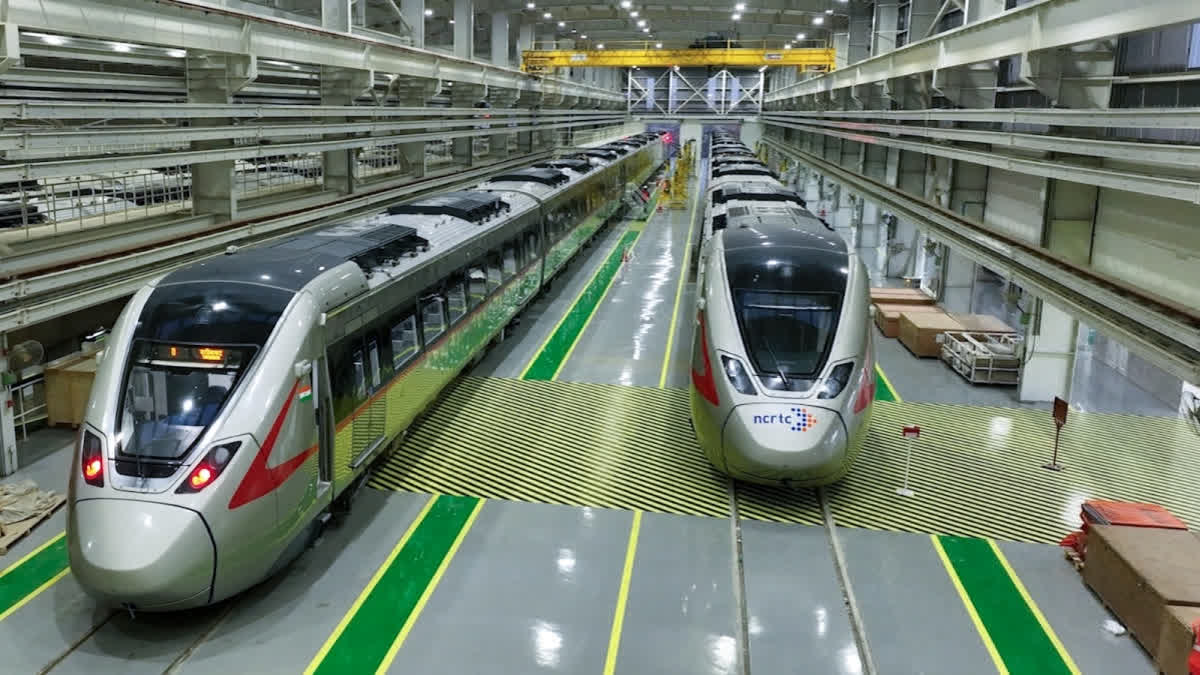New Delhi: The Regional Rapid Transit System (RRTS) Corridor, which has been developed on the Delhi-Ghaziabad-Meerut route, will be a state-of-the-art regional mobility solution and is comparable to a modern transport system that will provide safe, reliable and modern intercity commuting in the country.
The entire corridor is expected to be operational by the targeted deadline of 2025. However, currently, a total of 42 km of the Delhi-Ghaziabad-Meerut RRTS corridor is operational which covers nine stations from Sahibabad in Ghaziabad to Meerut South in Meerut, the National Capital Region Transport Corporation (NCRTC) officials said.
This network will have extensive multi-modal integration with Railway stations, Metro stations and Bus services and this transformative regional mobility will boost economic activity in the region and help to reduce vehicular air pollution.
CO2 Sensors
According to the NCRTC, various modern technologies are installed at stations for the comfortable journey of the passengers. For this, to ensure optimal air quality for Namo Bharat passengers, CO2 sensors are installed at the stations and public areas to monitor CO2 levels. A logic controller analyses this data and regulates fresh air intake levels as and when necessary to ensure proper ventilation.
"CO2 sensors are being installed in each underground station. Underground stations of RRTS are Anand Vihar in Delhi and Meerut Central, Bhaisali and Begumpul in Meerut and monitoring is done at each of these stations at the station control room and centrally at Operation Control Centre (OCC)," an NCRTC official said.
Environment Control System
New-age tools have been adopted to strategically plan the Environment Control System which helps to prevent the formation of hot or cold spots within the stations, optimising station layout and infrastructure design for passenger comfort, officials added.
Water-Cooled Chillers
NCRTC has planned efficient water-cooled chillers that have the high-performance capability to provide optimum comfortable temperature and freshness inside the stations. This will also maintain the humidity level in the stations, they added.
Rental two-wheeler
To improve and streamline the last mile connectivity for the convenience of passengers on the Delhi-Ghaziabad-Meerut RRTS Corridor, passengers will get the facility of rental two-wheeler/bicycle along with feeder bus, cab and auto rickshaw under last mile connectivity at stations, officials said.
Parking facility
As per NCRTC, it provides extensive parking facilities at RRTS stations to encourage the use of public transport for this provision to park more than 8000 vehicles at RRTS stations on the Delhi-Meerut Corridor.
Unique QR code
The passengers of Namo Bharat Train will get the experience of a seamless travel solution over the RRTS Corridor as ticket users can simply scan their RRTS QR codes at the entry gates of the station using an Electronic Reservation Slip or the Mobile App for effortless entry.
Rental Power Bank
All RRTS stations will have a rental power bank facility for mobile charging following which the first mobile charging station is now available at Sahibabad station.



